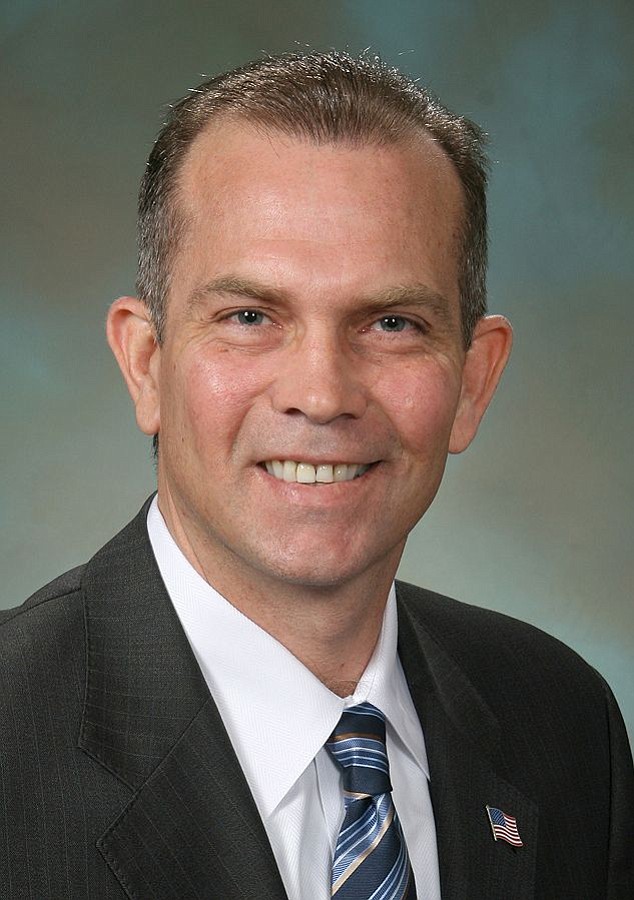What’s to blame for Washington’s budget woes? Irresponsible state spending or unprecedented recession-driven revenue declines?
Members of the Rotary Club of Vancouver got both views at their weekly lunch Wednesday as Republican state Sen. Joe Zarelli and Democratic state Rep. Jim Jacks offered their takes on the recent 2010 regular and special legislative sessions.
Zarelli, the ranking Republican on the budget-writing Ways and Means Committee, laid much of the blame for staggering state deficits on Gov. Chris Gregoire, noting that state spending grew by one-third between 2004-08, a period that coincides with the Democratic governor’s first term.
“What we’ve lost in the past couple of years was what we grew by in the previous four years,” he said. And the problem isn’t going away, he warned: the latest revenue and economic projections predict the 2011 Legislature will face a $6 billion budget deficit, barring a dramatic economic recovery by January.
Zarelli, a 15-year legislative veteran, criticized the Democratic-controlled body for balancing the budget with new taxes and temporary measures that “kick the can down the road” instead of making hard choices about what the state can and cannot afford.
Jacks, who is completing his first House term after serving as Gregoire’s representative to Southwest Washington for several years, saw the state’s financial crisis in a different light.
He said the state has had to confront a $12 billion budget problem over the past two years. Its budget-balancing high wire act has relied on spending cuts for 45 percent of the solution, one-time federal money for 29 percent and transfers among state accounts for 17 percent. Just 9 percent has come from new revenue, including tax increases, he said.
Unfortunately, he said, when citizens come to the Legislature, they are usually asking lawmakers to do something that costs money. Only rarely do citizens ask government to do less.
“If you want civilization, you have to pay for it,” he said.
Jacks noted several good things for Clark County that came out of the 2010 regular and special sessions. Those included retention of the retail sales tax exemption for non-residents, restoration of a popular out-of-state vehicle license enforcement program to catch license cheats, and reversal of the governor’s decision to close Larch Corrections Center.
The key to keeping Larch open “was not the save-the-jobs argument,” Jacks said. “It was maintaining capacity in the corrections system” statewide, and that involved intense behind-the-scenes negotiations that resulted in an agreement to keep Larch at half its capacity while dramatically reducing the size of the McNeil Island prison near Tacoma.
Jacks said the legislative process “is structured to be like ritualized warfare,” but in fact the great majority of bills in every session pass unanimously.
Both legislators fielded a question from a Rotarian about the growing power of public employee unions.
Zarelli called the question “one of those elephant-in-the-room issues” that Democrats have declined to address. He noted that the state picks up 88 percent of the cost of health benefits for its union employees, while in the private sector employers pay an average of 23 percent of health premiums for their workers.
“We’re expecting to have a half-billion-dollar deficit in these funds,” he said. And the governor also passed up an opportunity to cut personnel costs by agreeing to pay raises for many state workers in the current budget cycle, he said.
Jacks agreed that public employee unions are “a powerful constituency,” but added, “I think they have been profoundly disappointed” by program cuts in the current budget cycle that will eliminate state jobs.
He noted that last month the Washington Federation of State Employees announced it would withhold campaign endorsements and campaign contributions for all incumbent Democrats in the state Senate — and all but 16 of 61 incumbent House Democrats — as retribution.
Kathie Durbin: 360-735-4523 or kathie.durbin@columbiancom.



